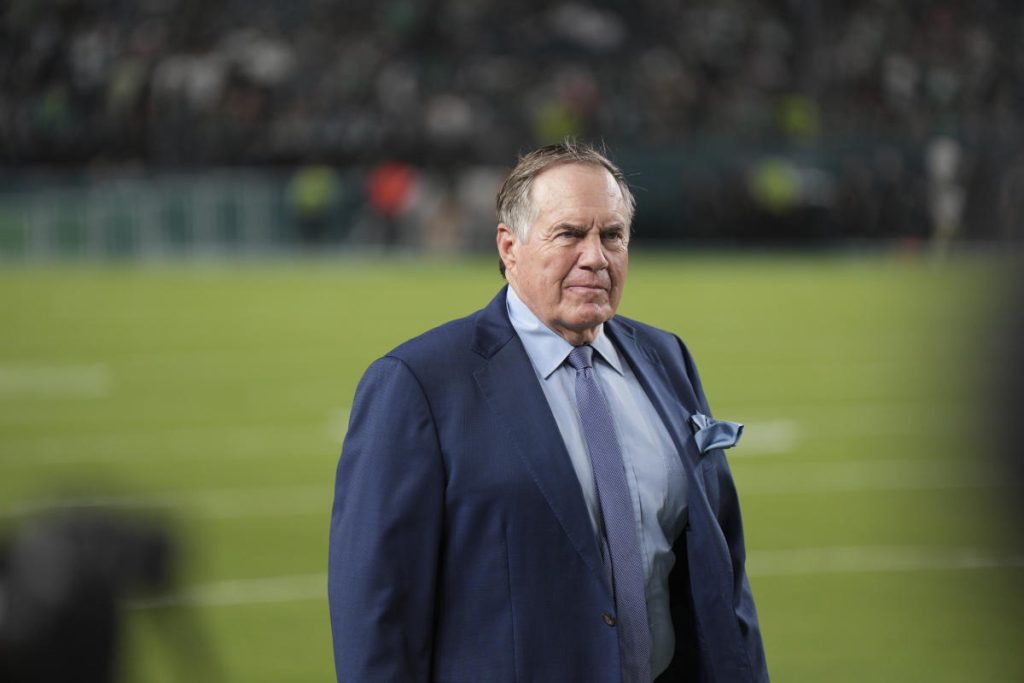Bill Belichick criticized New York Jets owner Woody Johnson for his decision to fire head coach Robert Saleh after just five games into the season. Belichick, speaking on ESPN’s alternate broadcast during the Jets’ game with the Buffalo Bills on Monday night, expressed his surprise at the move, calling it premature. Belichick pointed out the Jets’ lackluster performance over the past decade, winning just over 30% of their games, and criticized Johnson for his quick trigger in firing coaches.
Saleh was hired ahead of the 2021 season for his first head coaching job in the league. He finished with a 20-36 record and never had a winning season during his time with the Jets. Despite Saleh’s struggles, Belichick believed he was doing a good job with the team, citing the culture of toughness and competitiveness that Saleh had instilled. The decision to fire Saleh came as a surprise to many in the NFL world, with Johnson stating that he felt Saleh was not meeting expectations with one of the most talented teams the Jets had ever assembled.
Belichick’s criticism of the Jets’ decision to fire Saleh was rooted in his long history of competition with the organization. Having spent more than two decades leading the New England Patriots, Belichick had faced off against the Jets, owned by Johnson since 2000, numerous times. Belichick’s success, winning six Super Bowls and 17 division titles, contrasted sharply with the Jets’ lack of consistent success, winning the AFC East only once and making just six playoff appearances in that time period.
Despite Belichick’s rocky history with the Jets, including a brief tenure as their head coach before abruptly resigning, he believed Saleh was on the right track with the team. Belichick emphasized the positive impact Saleh had made on the team’s culture and competitiveness and expressed his belief that the Jets were not far from winning. Belichick’s transition into a media role with ESPN has allowed him to share more candid opinions, including his thoughts on the Jets’ decision-making process.
Belichick’s comments reflect his deep knowledge of the NFL landscape and his willingness to challenge conventional wisdom. His criticism of the Jets’ decision to fire Saleh highlights the complexities of coaching in a highly competitive league and the challenges that owners face in balancing short-term results with long-term success. Belichick’s track record of success with the Patriots lends weight to his opinions on coaching and leadership in the NFL, making his critique of Johnson’s decision to fire Saleh a significant moment in the ongoing dialogue around coaching decisions in the league.













